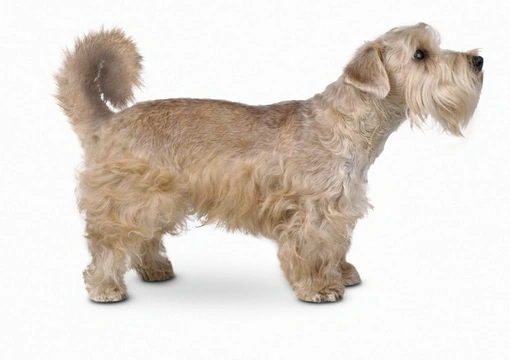
What is a sporting Lucas terrier?
There are well over 200 different pedigree dog breeds recognised in the UK, as well as many other dog types that have a level of uniformity and shared traits across each type, but that are not formally recognised as pedigrees for Kennel Club registration, and that have no formal breed standard in place.
Some of these dog types are hybrids or deliberate cross-breeds, which are very popular today, whilst others are developed as brand-new individual breeds in their own right, and either of these newly-created dog types may potentially become formally recognised and eligible for Kennel Club registration in years to come.
Whilst most of us could name at least a few such non-pedigree dog types with ease – like the Labradoodle or Cockapoo – others are less well known, and one of these is the sporting Lucas terrier.
The sporting Lucas terrier – sometimes simply referred to as the Lucas terrier – is a dog type that has been in development for many decades already, although there are only small numbers of them around and they have not become as widely spread and popular as many other non-pedigree dog types.
If you are looking to buy or adopt a dog of the terrier type and are looking for something a little different, a sporting Lucas terrier is one of the dog types you might wish to consider when doing your research. In this article we will look at the sporting Lucas terrier in more detail, and explain the basics of their core traits, appearance and temperament. Read on to learn more.
The origins of the sporting Lucas terrier
Development of the dog type that we call the sporting Lucas terrier began during the 1940’s, and started with selective breeding to create a breed line of dogs with Norfolk terrier and Sealyham terrier ancestry, which possessed a superior ability to track prey and flush it out. Later on, Plummer terriers too were introduced into breeding programs to enhance these traits, and the breed or type that we know today became established.
Sporting Lucas terriers are not common in the UK today, but many dogs of this type still perform active working roles, which is a point of great pride for enthusiasts of the breed.
Sporting Lucas terriers can also make for good pets for the right type of owners too, and they can be very rewarding to own.
What do sporting Lucas terriers look like?
Sporting Lucas terriers are small dogs of the terrier type, standing up to around 30cm tall at the withers and weighing up to about 9kg. They are small and compact dogs that are well balanced and lean, with good musculature and a proportionate build.
The dog’s coats are wiry in texture, underlain by a soft, dense undercoat to help to protect them against the elements. Coat colours can range from all black to black with tan to white with brown or grey markings, and sporting Lucas terriers tend to have a somewhat shaggy appearance to their coats.
What type of temperament do sporting Lucas terriers have?
Sporting Lucas terriers are very lively and energetic dogs that are always on the go and that like to have something to do. They are also renowned for being bold and almost fearless, with lots of tenacity and something of a stubborn streak too.
Whilst they require a lot of exercise and mental stimulation, they aren’t as hyperactive and obsessive about things as many other terrier breeds, and they often learn quickly and very much enjoy training, as this gives them something to focus on.
They are savvy little dogs with a lot of street smarts, and whilst they love adventure, they tend to be good at keeping themselves safe too.
Sporting Lucas terriers are very loyal and affectionate with their owners but they can be slightly wary of strangers, and take a while to warm up to new people.
Something else worth noting about the sporting Lucas is that they are not generally yappy or noisy dogs, which means that they don’t tend to cause problems with the neighbours, and their coats are reasonably low maintenance too.
What sort of home and lifestyle does a sporting Lucas terrier need?
A home within which the dog can perform a working role or have some other form of structured routine such as with training or canine sport is a good fit for the sporting Lucas terrier, as this helps to provide exercise, mental stimulation, and a rewarding life.
An active, lively lifestyle is the best fit for a sporting Lucas, and they do need a reasonable amount of walks and playtime each day in order to thrive.
Sporting Lucas terriers are generally quite amenable to training, but they will also keep their handlers on their toes and so a plan is necessary in order to structure effective training for dogs of the breed.
Whilst they are not typically thought of as an obvious choice of pet for the first-time dog owner, if you are prepared to do your research and spend some time going out to meet dogs of this type and talk to their owners, they might still be a good fit if you are prepared to put the work in and learn how to manage and handle the dog effectively.



